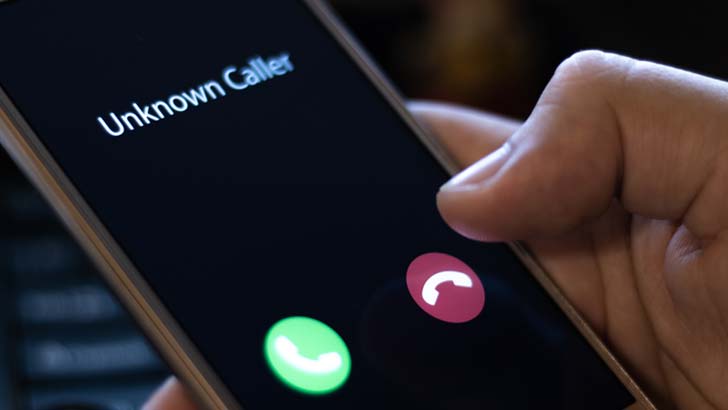Confessions of a former debt collector
By Annabelle Dickson
The second I sent an email in bright red, capital letters screaming that a five year credit default was about to stain the recipient's flawless record, I felt relieved.
That fleeting respite was payback for the constant barrage of abuse I would receive on the phone every day.
This was just one of the ways I used to contact people when I was working as a debt collector. Others included sending the same message via SMS and then phone calls, which were disheartening as they often ended with me being hung up on.
I worked my way up from dealing with debtors that had balances of $500 to $10,000 to accounts with much higher balances, the charge and corporate accounts that went well into the hundreds of thousands.
Growing debt
According to the latest RBA figures, Australian credit and charge card balances are accruing interest at more than $25 billion.
Most of the cardholders were male, business owners or employees of large multinational corporations. I came across the wife of a famous sports star, a fashion designer who fled to Europe, multiple noted barristers, executives, famous restaurateurs and Instagram influencers.
Working in this portfolio woke up something highly competitive in me. When I would receive BPAY receipts for $75,000, perhaps after threatening legitimate legal action as a consequence for non-payment, I didn't just feel relief - I felt satisfaction.
The payments people eventually made went towards my internal target and put me in the running for incentives of up to $1800 a month on top of my normal wage. I was determined to beat my colleagues.
A day in the life
My day would start by receiving the accounts and calling the numbers listed on their account.
More often than not my calls went unanswered so I performed what's known in the industry as a skip trace. That means tracing debtors who have 'skipped out' on their debt obligations and disappeared into thin air.
When you apply for a credit card you provide your address, contact number, employer details and financial particulars. All of this information is passed on to debt collectors and was vital to getting results from a skip trace.
I took on the form of a detective and would call the debtor's former/new neighbours, employers or other known contacts to attempt to reach them.
I would not reveal my real motive because I was bound by debt collecting privacy guidelines and I needed to have a commercial and private inquiry agent, or CAPI license, to do all of this.
Social media sleuth
I searched on all social media platforms (LinkedIn was a good one), before moving to commercial databases where I could find rental applications, a new phone number, how much they sold their house for and even if they had a credit default.
I felt like I knew these people personally as I uncovered fascinating dirty laundry from a simple Google search that I'm sure the debtor would not want to be seen by someone chasing them for money.
When people did eventually pick up my phone calls I was required to set up a payment arrangement with them based on the results of a full weekly/fortnightly/monthly budget that I would take them through to understand all their expenses.
That was my morning done. In the afternoon I'd move onto to calling everyone who was approaching their 'cycle cut' or in other words, their billing cycle.
This was mainly done by the dreaded 'dialler' system that scans through thousands of phone numbers and the second someone answers it gets passed through to the poor person on the other end, to try and figure out the entire history of their account in just a couple of seconds.
Anyone who has been contacted by someone in a call centre may have received a phone call where there is silence on the other end for a few seconds - this is the dialler and it is just as awful for the debt collector as it is for the person answering the phone.

Rules of debt collection
The Australian Securities and Investments Commission dictate that debt collectors can only contact a debtor three times a week or 10 times a month at the most.
A contact includes a letter, email, SMS or a voicemail. Continuous contact where the debtor is responding does not count.
Here is the catch - the endless unanswered phone calls or phone calls that were cut short before going through an identification process do not count.
For those debtors who could not make the minimum repayments on their cards, there was a financial hardship program. This is something that I would implore anyone who is suffering financial hardship to do - contact their creditors and ask what they have on offer.
I am grateful for my experience in the debt collection industry as it taught me invaluable lessons about money and budgeting, simply through hearing the experiences of others.
If you are wondering whether or not to get in touch with someone who is chasing you for money, I would highly recommend it because then they will finally leave you alone.
How to deal with a debt collector
- Understand how often they are allowed to contact you. If they harass you, ask them in writing to stop. If they continue, lodge a complaint with the Australian Financial Complaints Authority.
- Confirm the debt is yours - don't pay anything until you have confirmed this.
- Negotiate a realistic repayment plan. This budget from MoneySmart can help if you are unsure of your financial commitments. Make sure you get a copy of the repayment plan in writing.
- Call the National Debt Hotline on 1800 007 007 for free and confidential advice from professional financial counsellors
Get stories like this in our newsletters.



